About Tokyo Tech
About Tokyo Tech
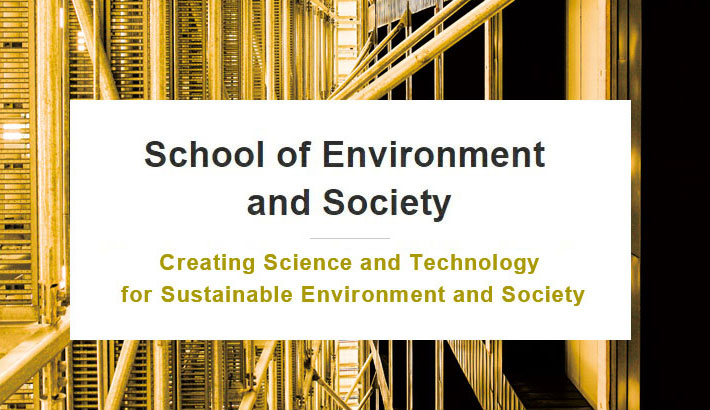
The School of Environment and Society comprises the Departments of Architecture and Building Engineering, Civil and Environmental Engineering, Transdisciplinary Science and Engineering, Social and Human Sciences, Innovation Science, and Technology and Innovation Management. Although the specializations of the six departments differ,at the School of Environment and Society, we all aim to train individuals who are capable of solving interdisciplinary problems. This is important because today, significant changes in global and city environments as well as shifts in the social climate have generated transdisciplinary problems that transcend multiple fields. The need to cultivate students with broad perspectives and deep knowledge that are of international value goes without saying. Our students are trained to become future-oriented, global-minded individuals who can understand the latest in technology, values, and concepts that are sought by society. Furthermore, they will develop skills to evaluate and integrate technologies from a wide range of fields, skills to communicate with engineers in these various fields, skills to make concrete proposals, and management skills.
![]()
![]()
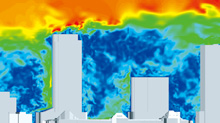
How do you perceive societies and environments?
While studying engineering and the natural sciences, it is important to keep a philosophical eye on what is taking place within environments and societies. For this, discovering your own philosophies not only through your knowledge of various fields, but formation of these based on ample historical and technological context becomes crucial.
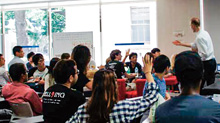
Acquire globally oriented logical reasoning and communication skills.
For researchers and engineers to effectively fulfill their roles in the international community, interaction and exchange of information with peers around the world are of great importance. Learn reasoning and communication methods that allow you to thoroughly understanding the views of others, make proposals that focus on selected issues, and logically and accurately convey your thoughts and intentions.
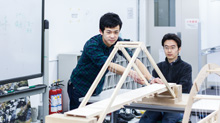
Experience education and research that are built around monozukuri and kotozukuri.
Through trial and error, creation and destruction, appreciate anew the importance of "kotozukuri" (value creation). Realize how it can be absorbed to solve the perennial problems afflicting Japanese society, such as concept creation issues and lowering the cost of "monozukuri" (manufacturing, the Japanese way). Learn to make concrete proposals built around this underlying philosophy.
School of Environment and Society |
1st year of bachelor's program |
Undergraduate Major (undergraduate study year 2–4) |
Graduate Major |
|---|---|---|---|
School of Environment and Society |
|||
― |
― |
||
― |
― |
||
― |
― |
||
School-Affiliated Research Center |
|||
* Interdisciplinary graduate majors connected to multiple departments

As university education is rapidly globalizing, the School of Engineering, the School of Materials and Chemical Technology, and the School of Environment and Society are focusing on creating international research networks to support participation in projects and encourage exchange among students, faculty, and researchers. More than 50 school-level agreements have been concluded with top-level universities around the world, and international exchange programs with scholarships from Engineering School Funds are being implemented with some of those universities. In addition, Erasmus+ will provide financial assistance to students wishing to study at relevant partner universities with which international exchange agreements are in place.
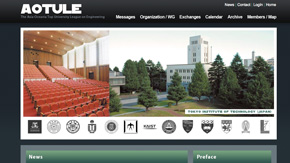
The Asia-Oceania Top University League on Engineering (AOTULE) is a university league established for the purpose of promoting multilateral exchange between 12 leading engineering universities in Asia and Oceania. Its activities include international student conferences, workshops held at Tokyo Tech as well as various other regions in Asia and Oceania, and overseas placements to conduct research.
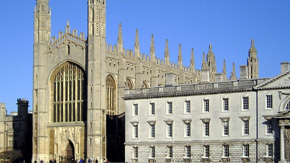
Support is provided for students to study abroad for two to three months at partner universities based on school-to-school agreements in engineering fields.Current partner universities include University of Wisconsin–Madison; University of California, Santa Barbara; University of Cambridge; University of Oxford; University of Warwick; University of Southampton; Pierre and Marie Curie University (UPMC, University of Paris VI); RWTH Aachen University; and Technical University of Madrid (UPM).
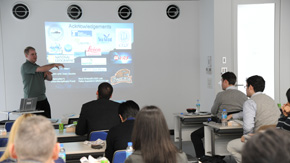
This International Graduate Program develops leading researchers and engineers who can display worldwide leadership in the field of earthquake hazard mitigation. In addition to cultivating individuals who possess advanced knowledge on earthquake hazard mitigation, these individuals will also be cultivated to possess international communication skills, a broad perspective, the ability to think flexibly, and the ability to generate novel and remarkable ideas. Furthermore, they will be trained to become individuals who show international leadership in education and research, and can manage undertakings, from the identification of problems to finding their solution, in the global community.
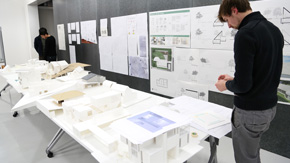
This International Graduate Program, which deals with architectural design, is a Master's Program targeted mainly at international students. Its curriculum is made up of courses that require students to make specific architectural design proposals (studio courses) based on fieldwork that searches for new architectural themes in an urban context, and those based on acquired knowledge of architectural history and design theories. In addition, architectural tours are offered as seminars, giving students the opportunity to see and understand Japanese metropolises and architectural environments throughout the country.
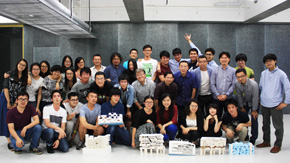
A joint workshop on architectural design and another on building structure materials are organized by Tongji University in China and Tokyo Tech once a year. Through collaborative activities in workshops that last from several days to a week, participants learn to work together as a team and with those from different cultures. The venue alternates yearly between Shanghai and Tokyo.
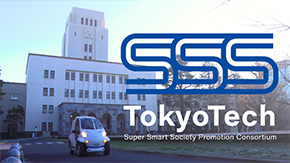
Tokyo Tech is newly launching a consortium to promote the realization of Super Smart Society (Society 5.0), and planning to develop future leaders who are capable of supporting the transformation to Super Smart Society. To accomplish this aim, Tokyo Tech is looking for highly motivated companies who wish to join this consortium and support this education program.
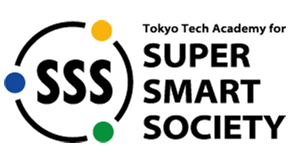
The WISE (World-leading Innovative & Smart Education) program for Super Smart Society (WISE Program for SSS) is an integrated master's and doctoral degree program offered by the Tokyo Tech Academy for Super Smart Society. The program's objective is to help students develop competencies and skills they will need to become "knowledge professionals" ("super PhDs") integrating physical space technologies with cyber space technologies as well as combining advanced sciences and technologies, such as quantum science and artificial intelligence.
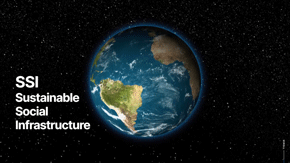
SSI (Sustainable Social Infrastructure) is a next-generation social infrastructure that promotes individual happiness by ensuring safety and security for when life expectancy reaches 100 years. Team Tokyo Tech aims to solve four global social issues -building a resilient society, designing voices of the Earth, creating smart cities, innovation- to create the foundation for the realization of SSI. Team Tokyo Tech is a front runner in contributing to the realization of SSI through cooperation with companies and industries.
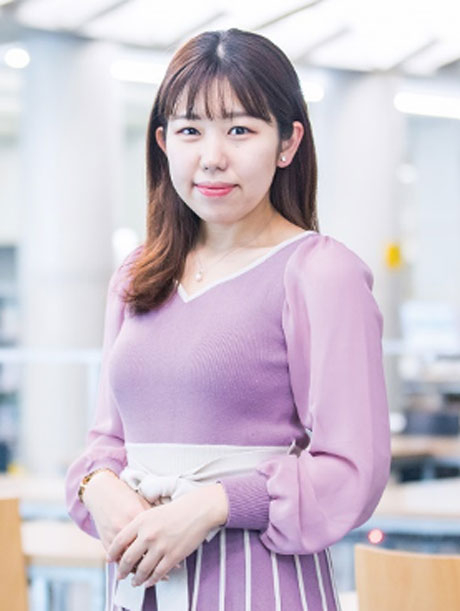
Deriving a Scenario to Uncover Mysteries in Jupiter's Formation
Ayumi Ono
2nd-year master's student, AY 2022
Department of Earth and Planetary Sciences, School of Environment and Society
Planets like Earth are thought to have formed as a result of collision and the gathering of dust from protoplanetary disks, structures composed of dust and gas. I am focusing on the unique composition of Jupiter's atmosphere and am trying to figure out the process of the formation of the planet by simultaneously calculating the growth of dust and the temperature structure change over time. To me, it is fun and fascinating to compare simulation output with observed results, and derive a scenario through a number of trials and errors.
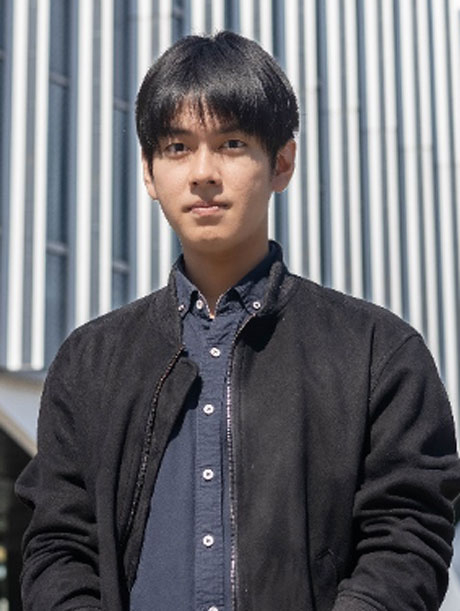
Creating an attractive space: An approach from the structural field
Keiichiro Sada
4th year bachelor's student, AY 2023
Department of Architecture and Building Engineering, School of Environment and Society
Architecture is not just an engineering discipline that focuses on monozukuri (high-quality manufacturing), but it is also an academic field focusing on people who use buildings. Among them, the steel structure that I am currently studying cannot be separated from the creation of large spaces where many people spend time, such as public facilities and high-rise buildings. We hope to clarify the behavior of structures through experiments and analysis, which will give us more flexibility to design and make spaces with steel frames more attractive.
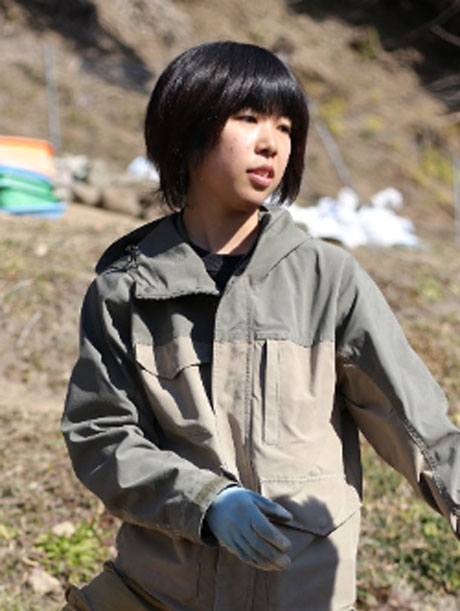
Learning architecture through practice in society
Yukako Masui
2nd year master's student, AY 2023
Department of Architecture and Building Engineering, School of Environment and Society
In our laboratory, we designed and built tiny houses by ourselves in a satoyama (a natural landscape close to a rural village) where we regularly visit. We also visited five Asian countries for actual measurement and to measure the thermal environment at places where people are working under trees. We will produce architectural designs and a thesis based on our thoughts while moving practically in society. I feel the potential architecture has to give form to intangible things such as technology, faith, and natural circulation, and by fostering the culture of the people in the community.
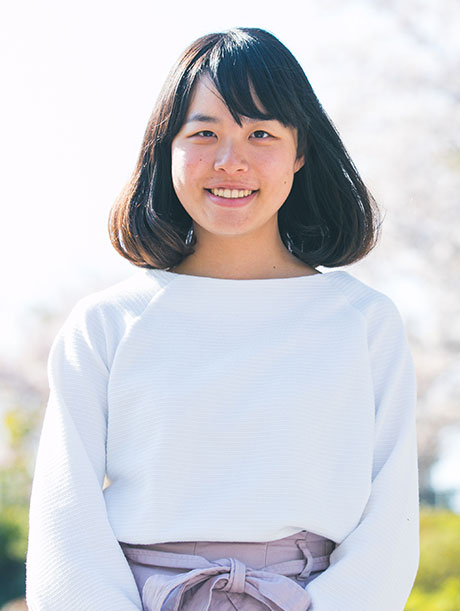
Aiming to Support Japan's Infrastructure by Becoming a Concrete Expert
Kyoka Inoue
3rd-year bachelor’s student, AY 2018
Department of Civil and Environmental Engineering, School of Environment and Society
I was able to look at my major with renewed interest when I found out that the study of infrastructure encompassed a broad range of topics including communications and ecosystems. I especially love laboratory courses as they enable me to deepen my understanding through observing the difference between theory and practice. When I advance to my fourth year, I would like to join a laboratory of my choosing after having acquired enough knowledge in a wide range of fields. I want to do research on concrete, so that I can contribute to building a robust infrastructure that would withstand Japan's natural disasters.
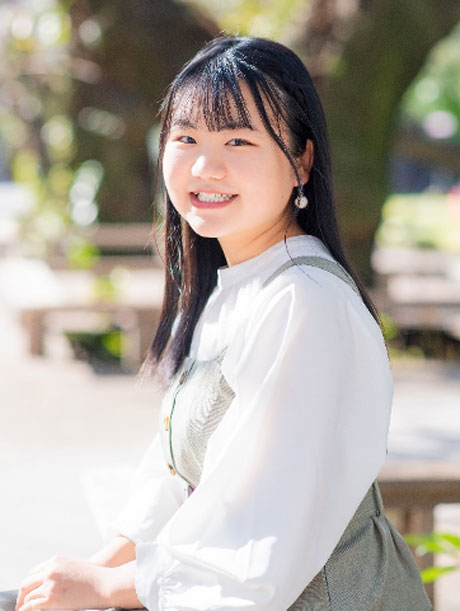
Engineering: Thinking and working for society
Saki Ohkawara
4th year bachelor's student, AY 2023
Department of Civil and Environmental Engineering, School of Environment and Society
"What is a truly sustainable society?" We are thinking about this issue from various perspectives, such as urban planning and rural landscape. The world of civil engineering and environmental engineering, which jumped into my interest while focusing on disaster prevention and environmental issues, was more connected to every aspect of society than I had imagined. It makes me realize that it is not so easy to dig deeply into current issues and to discuss future processes in a realistic manner. However, I feel that the complexity and sociality of the process is what makes this research so fascinating.
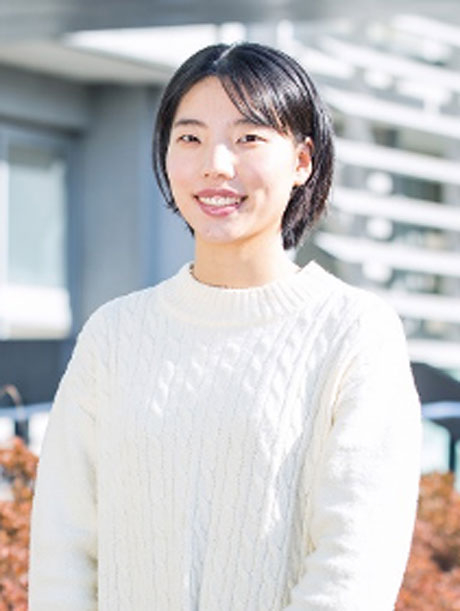
To become the generalist with strong on-site skills on top of academic expertise
Aoi Matsunaga
1st-year master's student, AY 2022
Department of Civil and Environmental Engineering, School of Environment and Society
The soil water index is an indicator used for issuing warnings and advisories against landslide disasters in Japan, but it may not be effective for prediction in certain regions because it applies the same calculation methods and parameters throughout the country. In my research, I am trying to identify appropriate parameters for each region by comparing the indicator’s readings corresponding to the actual occurrences of such disasters at locations with different soil natures and land usage. I hope this will lead to precise predictions of disasters and provide clues to developing land with fewer disaster risks.
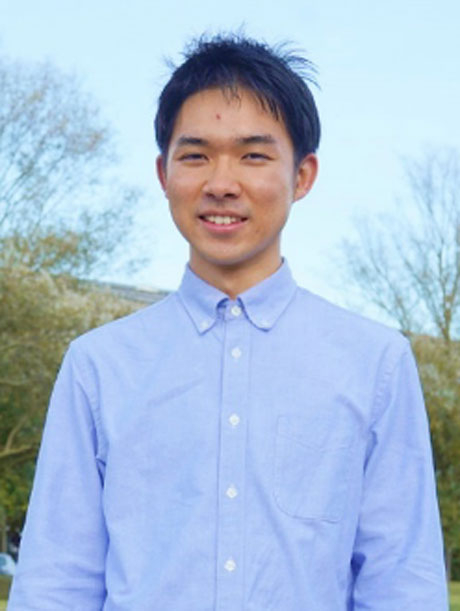
Becoming an engineer with a multifaceted perspective
Kei Matsumura
1st year master's student, AY 2023
Department of Civil and Environmental Engineering, School of Environment and Society
From the research we have conducted so far, through questionnaires and interviews with the personnel engaging in railway maintenance and management (track maintenance and civil engineering) and surveys on bridge conditions, we have sorted out ideas on maintenance and management of structures (safety, workload, etc.), the fostering of the ideas thereof, and tangible and intangible demands. We hope that these results will lead to the future direction of technology development and the discussion of a rational organizational structure.I am currently studying in France to become an engineer with a multifaceted perspective.
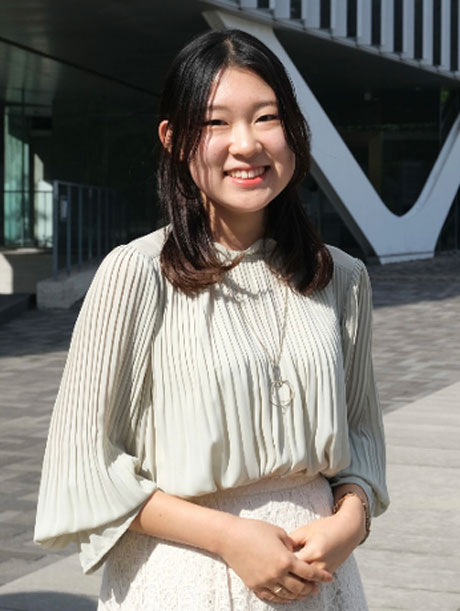
It is not just words: Considering approaches to communication
Risako Yanase
1st year master's student, AY 2023
Department of Transdisciplinary Science and Engineering, School of Environment and Society
While working at the Department of Transdisciplinary Science and Engineering with students and researchers from diverse backgrounds, including their scientific fields and nationalities, I found issues when trying to communicate verbally with others, as I could not convey my thoughts to them as well as I imagined. Currently, I am conducting research on communication methodologies to reduce discrepancies that may arise in discussions and to facilitate common understanding. As an example, we have created meeting minutes that utilize sketches, symbols, etc. to intuitively grasp the content of discussions, and we have verified their effectiveness through practice and analysis.
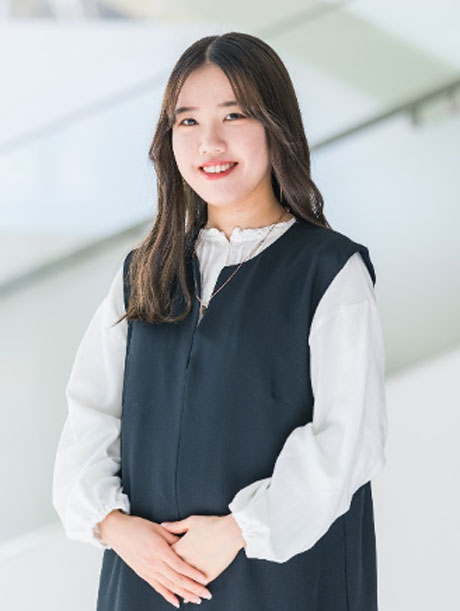
Common but unsolved problems are the source of new discovery and learning
Marina Wada
1st-year master's student, AY 2023
Department of Transdisciplinary Science and Engineering, School of Environment and Society
I am working on developing a littering behavior model using data on smart trash bins in locations with a continuous flow of people. Quantitatively evaluating littering behavior will help determine the optimal locations of trash bins and collection times, and will lead to a reduction of litter on streets. I am currently developing and verifying a model by combining data obtained from the smart trash bins already in place with the flow of people in the Harajuku-Omotesando area.
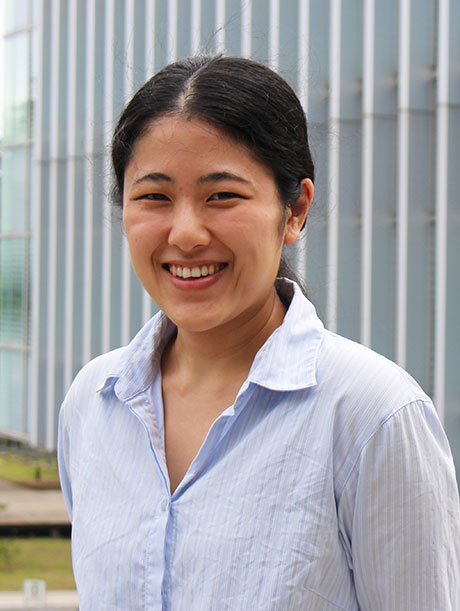
First-Year Undergraduate Studies for Women in Engineering
Ayaka Hayashi
1st-year doctoral student, AY 2018
Department of Social and Human Sciences, School of Environment and Society
I believe that the first year of undergraduate studies is a crucial period to build the foundation for learning at a university. I am conducting research on first-year engineering studies for women, with a focus on Purdue University College of Engineering's First-Year Engineering. In my research, I use interviews to discover the kinds of experiences women have and the things they learn during their time in this First-Year Engineering Program.
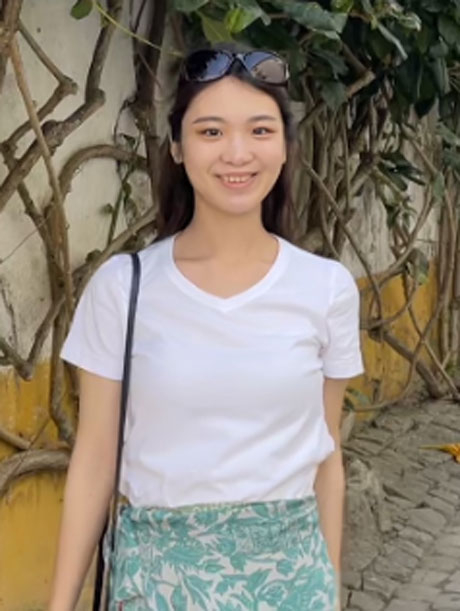
Explore interests using multifaceted perspectives
Hinako Ohkuma
2nd year master's student, AY 2023
Department of Social and Human Sciences, School of Environment and Society
My research focuses on eco-friendly fashion/ethical fashion, and how consumers'advocacy of it does not always lead to actual purchases. I am trying to identify desirable purchasing behaviors that each consumer may adopt with regards to ethical fashion and the problem of lack of purchases. I believe that this research will clarify a perspective that will promote and spark consumers' interest in purchasing ethical fashion.
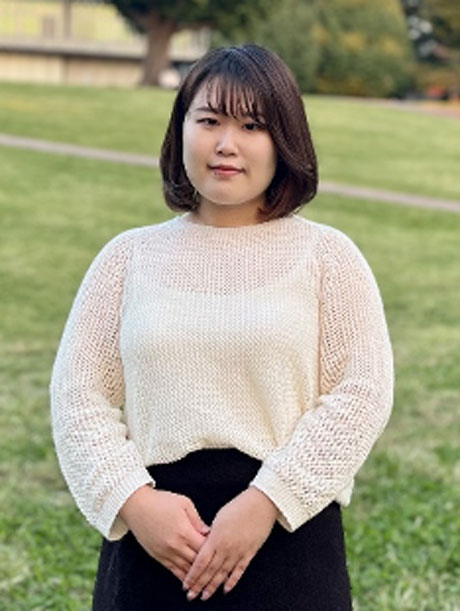
Exploring the possibilities of "voice" in past media statements
Saori Izumi
2nd year doctor's student, AY 2023
Department of Social and Human Sciences, School of Environment and Society
Strip shows, brought to Japan after World War II, have long entertained mainly male audiences with performances in which women undress and dance. My research analyzes specific comments made by dancers and female spectators and how, due to false dichotomies of being either indecency or art and exploitation or liberation, they have been misconstrued, misrepresented, and taken out of context when described in newspapers and magazines by males. I am exploring aspects that appear in these discourses such as the body, the gaze, and power.
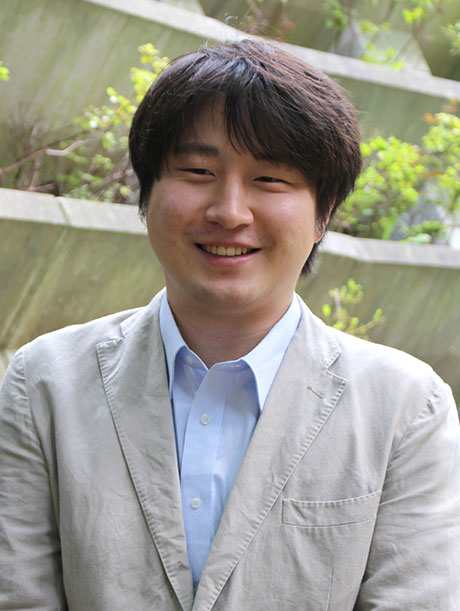
Promoting Innovation with Ambidextrous Knowledge either Science, Technology, and Managerial Knowledge
Shuto Miyashita
1st-year doctoral student, AY 2018
Department of Innovation Science, School of Environment and Society
I am conducting research for methodology on organizational operations and implementation into the actual society to promote interdisciplinary research and university-industry collaborations. Results of scientific and technological researches from academia have the potential to resolve social issues we face. However, implementing these research results into the actual society, it is necessary to understand the knowledge not only science and technology, but also management of them. I aim to find methods to turn these research results into innovations to realize better world.
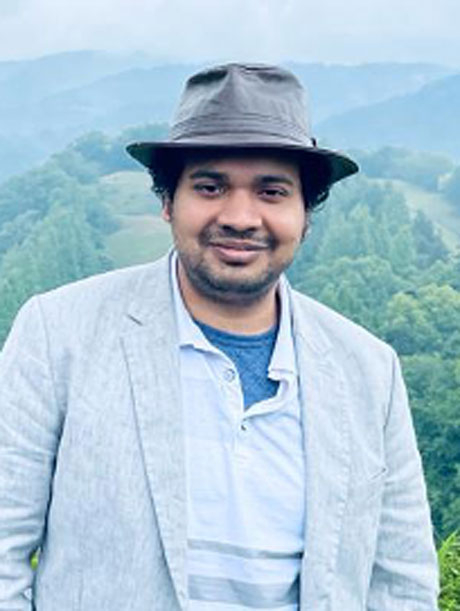
Our knowledge is limited, so pursue knowledge humbly
NIRJHOR MD SAMS AFIF
3rd year PhD student, AY 2023
Department of Innovation Science, School of Environment and Society
I study mathematical modeling of socioeconomic systems using evolutionary game theory. I had the opportunity to study evolutionary game theory for the first time when I was in my master's program. Learning that the evolutionary game theory can express people's social decision-making in mathematical formulas, I decided to make it my research theme. Mathematical models of evolutionary games allow us to interpret human behavior and help us understand how we can promote cooperation needed in various situations in society. This can be applied to business models, market analysis, law enforcement agencies, and many other types of system designs.
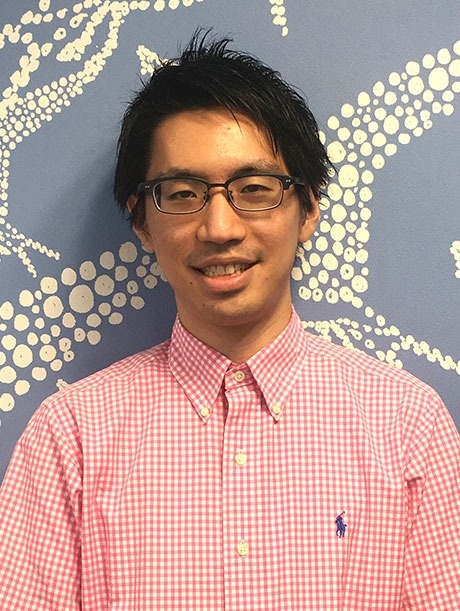
Connecting Technology to Management in Order to Generate Innovation
Shogo Yanakawa
2nd-year professional master’s degree student, AY 2018
Technology and Innovation Management (professional master's degree program), School of Environment and Society
I am conducting research on user innovation for enterprises to help users bring forth innovative solutions. User innovation faces issues in regards to continuous development and management of intellectual property. I analyze cases involving problems that have occurred, conduct surveys, and research means of solving such issues from both qualitative and quantitative perspectives. My research is very enjoyable as I am able to apply my knowledge of both technology and management.
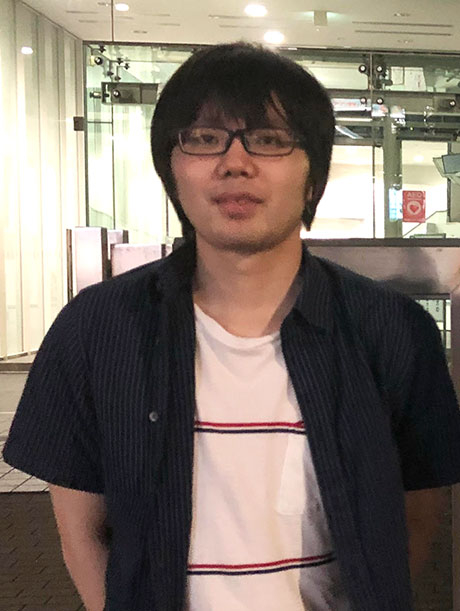
Bringing Innovation to My Beloved Ramen
Syunnosuke Yamada
1st-year professional master’s degree student, AY 2018
Technology and Innovation Management (professional master's degree program), School of Environment and Society
Ramen is loved not only in Japan but also all over the world, and personally, I cannot get enough of it. My ramen-related research makes every day an extremely fun experience.
Still in the middle of my research, I am currently examining the differences between Japan's signature ramen and purely Japanese cuisine, such as udon and soba, in terms of composition and other respects. Taking advantage of advice from teachers and people of various backgrounds, I will have gained greater perspective from which my research on ramen will surely benefit.
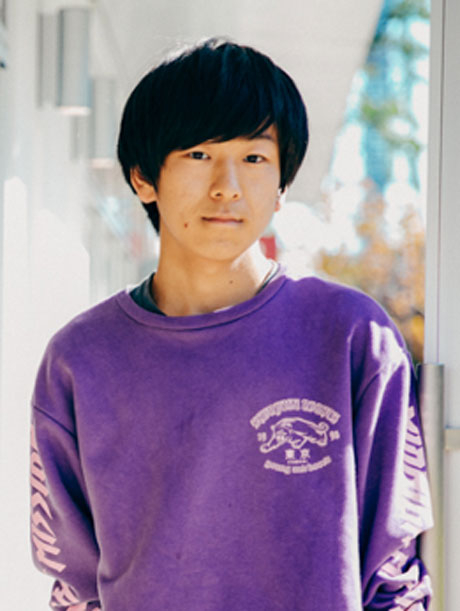
Aiming to build a safer and more secure information environment
Kei Ichikawa
2nd year professional master’s student, AY 2023
Technology and Innovation Management (professional master's degree program), School of Environment and Society
I am engaged in research on preventing the spread of fake news on social networking sites. In particular, we focus on features of fake news, such as images and videos/deepfakes created by generative AI, that are being shared and becoming widespread. We hope to apply our findings to content moderation measures and management policies for SNS service providers, which will lead to operation and creation of better information platforms.
Students - 1,830
Faculty - 178
* Number of students and faculty members are as of May 1, 2022.
Click below for the list of School of Environment and Society Faculty.
<Undergraduate Degree Program>
First-Class Teaching Certificate for Upper Secondary School(Industry)
<Master's Degree Program>
Advanced Class Teaching Certificate for Upper Secondary School(Industry)
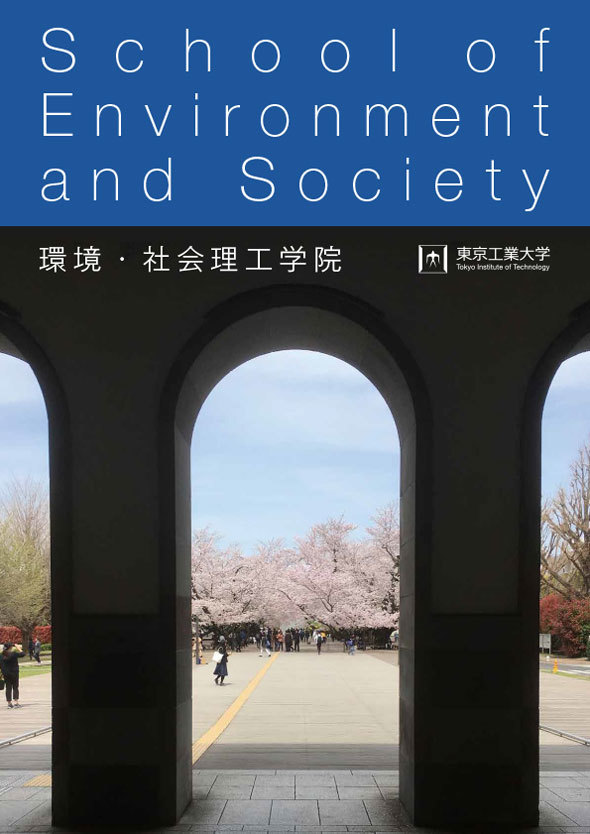
School of Environment and Society
Table of Contents